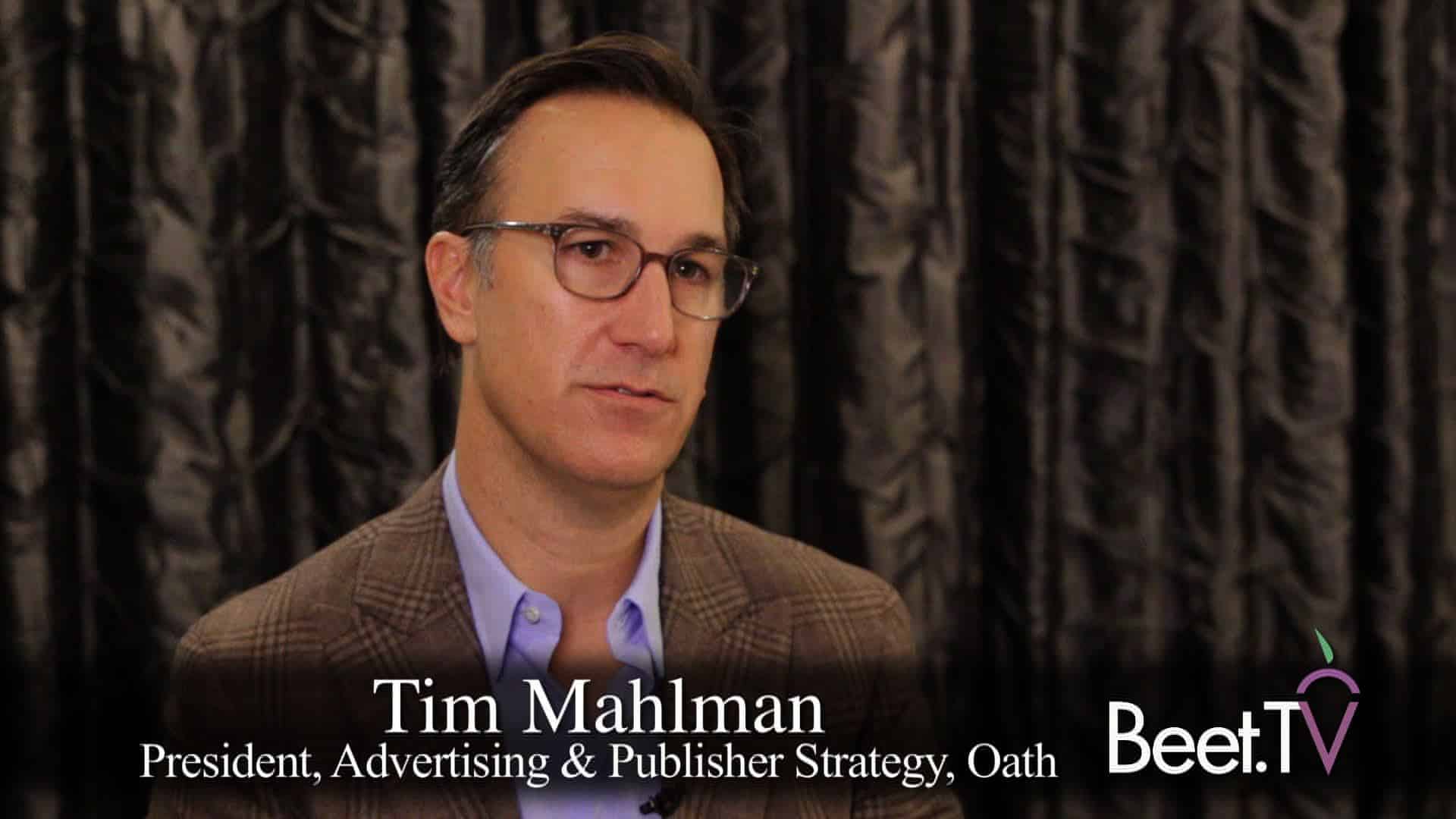
With just a few months left until the final deadline for compliance with new European privacy legislation that passed two years ago, how much impact could the new policy make?
Views of executives interviewed for Beet.TV’s GDPR series range everywhere from “not much” to “world-changing”.
But one of the world’s leading online publishers thinks the European Commission’s General Data Protection Regulation, which gives consumers new rights to instruct an end to the harvesting and algorithmic processing of personal data, could re-shape media business models.
Oath ad platforms VP Tim Mahlman, in this video interview with Beet.TV, says more publishers may move away from advertising-powered models in their current guise.
“There are definite media companies that are looking at going towards a subscription service in case those users decide not to opt and make sure that they can still keep their businesses going,” he says.
“That’s going to be a very interesting dynamic over the first six months, to see how that plays out on the subscription side.
“On the marketing side, I think they’re also going to be faced with some challenges, of course, because everyone’s going to have to either renew their privacy policies, ask (users) to opt in to what they need, and that could actually shrink the amount of available inventory they historically had been purchasing.”
New measures in the GDPR, which passed in 2016, include:
- tighter consent conditions for the collection of citizens’ data.
- consumers can instruct companies to stop processing their data.
- automated decision-making and profiling decisions must be made clear.
- consumers can request decisioning by automated processes be stopped and handled by a human instead.
- they have the right to request an explanation of automated decision-making.
- they can request free access, rectification and deletion of data.
And the rules must be followed by any global company processing EU citizens’ data, with penalties of up to 4% of global turnover.
Like many companies affected by the legislation, Mahlman stresses Oath has taken strides toward compliance: “We’ve created our own opt in for our consumers, so that we live up to the obligations.”
But, like many others, he believes the changes embodies in GDPR really crystallise what is becoming a new sense of limitation on ad tracking, a new resistance to super-targeting and new marketing techniques that now must rise – not just in Europe but around the world.
“We look at what’s going on with GDPR as an interesting foreshadow on what we could see happening on a global basis,” he says. “From an Oath perspective, we are looking at this as a global responsibility.”
Malhman agrees that putting the brakes on the kinds of practices seen over the last couple of years could resurrect a method of ad-buying that had fallen out of favour.
“I wouldn’t be surprised if you start to see the EU start looking at contextual targeting again as another option for that if the audiences aren’t there,” he adds. “That might be another avenue you could see the marketing going back to as a result of this enforcement.”
This video is part of our series on the preparation and anticipated impact GDPR on the digital media world. The series is presented by Criteo. Please visit this page for additional segments.